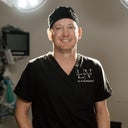Breast fat transfer tips
After multiple complications after two sets of breast implants in 8 years, I’ve had an explant with fat graft of 200 cc per breast during explant, while my tissues were still stretched(implants were 300 low profile). Any tips or advice on how to have the best retention possible? I was an A/small B pre implant with a slightly tuberous breast. Luckily my bases stretched with the implants so my breast shape is better.








